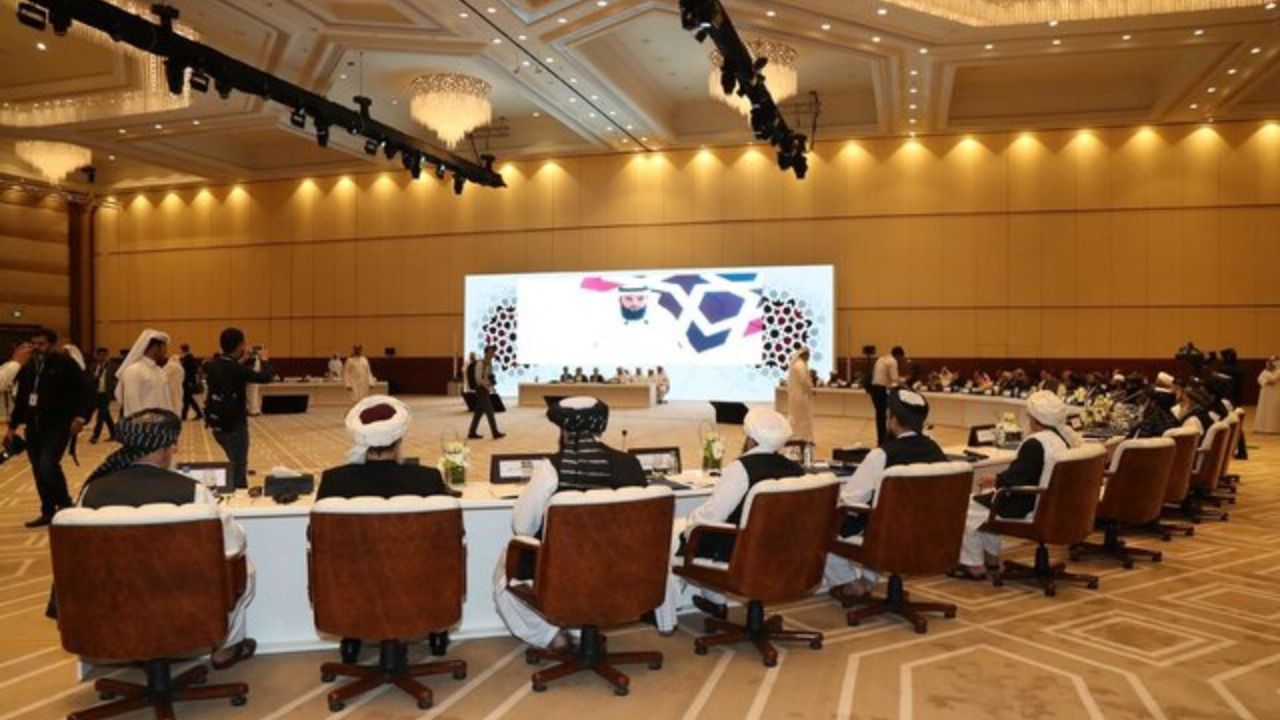The start of the peace talks between the Afghan government and the Taliban in September 2020 in Doha could be considered the most important event of the past year.
Although the process of inter-Afghan talks in Qatar was expected to move forward given the circumstances of the two sides in the conflict (the Afghan government and the Taliban), but the talks have stalled as the Taliban obstructed and conditioned the process on the implementation of the US commitments in the February 2020 peace agreement with the group.
The Taliban have conditioned any progress in the peace talks with the Afghan government for putting an end to the war and establishing a ceasefire in the country on the fulfillment of the US commitments, the most important of which is the complete withdrawal of foreign troops from Afghanistan.
On the contrary, the government of Afghanistan considers continuation of the Taliban violence in Afghanistan and linking implementation of the US commitments in the peace agreement with the Taliban to the Afghan-Afghan peace talks and believes that its progress to be contrary to the principle of the will to put an end to the war and violence in Afghanistan. With such behavior, the opportunity for peace in this country will be lost.
Faced with the US commitment to fulfill its obligations under the bilateral peace agreement, the Taliban have held the Afghan-Afghan peace talks hostage to the implementation of those commitments and the withdrawal of all foreign troops from Afghanistan.
Of course, the Taliban have not only conditioned progress on the peace talks with the Afghan government on the fulfillment of the US obligations under the peace agreement, but also have called for a change in the structure of power and government in Afghanistan.
The biggest internal demand of the Taliban in the peace process in Afghanistan is the overthrow of the current government and the establishment of the Islamic Emirate in that country. Taliban leaders have repeatedly stated that they do not recognize the Afghan government and constitution, and that a peace agreement should lead to the formation of an Islamic Emirate in Afghanistan.
Insistence of the Taliban is on changing the system of government in Afghanistan to the Islamic Emirate, while the nation and government have repeatedly stated that a peace agreement should not be made at the expense of the constitution and democracy and the return of the group to government.
The Taliban’s insistence on establishing an Islamic Emirate in Afghanistan, is at a time when its possible realization, will violate crucial constitutional clauses, including the republic, which has underpinned the formation of power in the country due to the will of the people and their participation in continuing this process. In the Taliban’s model for the establishment of the Islamic Emirate, the people have no role in governing and exercising their right to self-determination. The republican system, defined by the Afghan constitution as the essence of the country’s political system, is people-centered, and elections are an important tool in this model of government to prevent the government from moving towards tyranny.
In condition under which the Afghan people have experienced the Taliban dictatorship and its devastating consequences in various political, social, cultural and economic spheres, they strongly oppose any peace plan that would lead to the return of this model of government to their country and call on the Afghan government to defend all the principles of the constitution, especially the principle of the republic, in the process of negotiations with the Taliban to end the grip and establish peace.
It seems that as long as the Taliban do not distance themselves from their destructive positions, including changing the constitution and establishing the Islamic Emirate in Afghanistan, the stalemate in the peace talks between the group and the government will continue and the opportunity to end the years of violence and conflict are disappearing in Afghanistan.
As the Afghan government and people oppose the Taliban’s aspirations, including the establishment of an Islamic Emirate in Afghanistan and the loss of democratic gains in that country, the US government insists on the formation of an interim government that will oust Mohammad Ashraf Ghani’s government. This issue is facing serious opposition in that country.
Russia’s plan to host a joint Afghan government meeting with the Taliban also focuses on the formation of a transitional government, a model similar to the one the US-led interim government is pursuing.
The US and Russian governments, which support the formation of an interim government in Afghanistan, believe that if the interim government takes over the country for a new presidential election, the current challenge in the Afghan-Afghan negotiation process will be resolved.
The Taliban, meanwhile, are fundamentally opposed to an issue called elections and the role of the people in shaping the pillars of power in Afghanistan, and only seek to form a government in which only one ‘emir’ has the power to decide and control everything.
In the system of the Taliban Emirate, which has an ‘emir-centered’ nature, the role of the people is reduced, which is prone to tyranny and dictatorship, and the ‘emir’ has a lifelong position in that government.
Given that the Taliban are only thinking of returning Afghanistan to the period of dictatorship through the formation of the Islamic Emirate and want power only in the hands of this group, it will be very unlikely that the peace talks between the Afghan government and the Taliban will succeed.










0 Comments